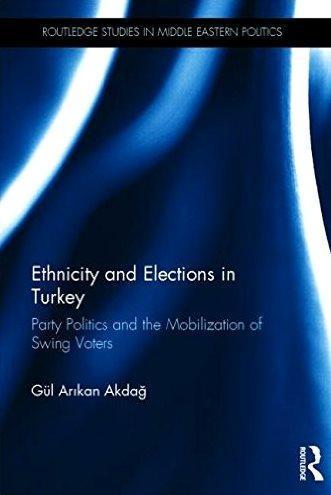Ethnicity and elections in Turkey
William Armstrong - william.armstrong@hdn.com.tr


The number one factor behind the erosion of support for the Justice and Development Party (AKP) in Turkey’s June election was the rallying of ethnic Kurdish voters behind the Peoples’ Democratic Party (HDP). Kurdish-origin voters had previously been split between the AKP and ethnic Kurdish parties, but in June an overwhelming number of Kurds, who make up around 15 percent of the population, consolidated behind the HDP. This deprived the AKP of its parliamentary majority, ultimately leading to the depressing prospect of yet another election on Nov. 1 after a coalition could not be formed.


The AKP has always understood the importance of local organization. Political Islamism in Turkey based its success in the 1980s and 90s on grassroots mobilization and service provision in the poor urban periphery, which helped to create broad and sympathetic constituencies. This process was described in detail by scholar Kayhan Delibaş in his book “The Rise of Political Islam in Turkey” (Delibaş was interviewed in HDN here). Akdağ’s “Ethnicity and Elections in Turkey” is even more granular, using extensive first-hand research of the AKP’s targeting of Kurdish voters in Istanbul during the 2011 election campaign. At times it is very dry, but for anyone interested the book is a treasure trove of information about how the AKP operates on the ground.
News reports about municipalities distributing pre-election coal or potatoes to poor neighborhoods are a familiar Turkish tradition, but that is just the sharp end of a sliding scale. As Delibaş showed, Islamist party organizations have long engaged in wide-ranging neighborhood work during and after elections. Often it was far more subtle and constructive than simply handing out coal: Group visits to women at home, solving housing problems, providing health services. As Akdağ writes: “There is great variety in the activities the neighborhood organizations perform and their frequency, but the major aim is to repeatedly contact as many voters as possible to increase and consolidate the partisan network … and to positively affect voters’ perceptions of the party.”
When AKP activists try to court Kurdish voters, they sense that they are competing on away territory, making it more difficult to win hearts and minds. Akdağ observes an awareness of “difference” among AKP campaigners, many of whom expressed a general low-level discrimination towards Kurdish citizens during campaigning. There was an implicit sense that Kurds have a group identity and loyalty lying elsewhere, so the AKP had to come up with a different strategy to woo them.
One tactic was to target Kurds based on contacting them through co-ethnics, appointing local Kurdish-origin activists in majority Kurdish neighborhoods. To overcome sometimes violent local hostility and gain the sympathy of voters, activists deliberately indicated their origin through expressing their hometown or speaking in Kurdish. Once this bond was formed, neighborhood organizations were able to broaden their local activities and deepen clientelistic relations. The AKP was thus able to reach Kurdish voters to a far greater degree than other non-ethnic Kurdish parties. As an AKP neighborhood branch head in Beyoğlu told Akdağ: “They all change when you provide them assistance. I think social assistance is very effective, since they know that they should support the party if they want the benefits to continue.”
Indeed, Kurdish voters in urban areas are generally more susceptible to clientelistic motivation. As they tend to live in poorer neighborhoods, problems are greater and services provided tend to be more valued. One member in the Beykoz district of Istanbul refers to the low educational profile of many Kurdish voters in the area: “They do not understand foreign policy or national politics. Their main concern is how much the party serves and solves the problems in their neighborhoods.” Of course, providing services on a clientelistic basis also reinforces a cycle of success. Akdağ’s study shows the advantage to incumbents of having greater state resources at their disposal, while incumbency strengthens voters’ perception that the party will deliver if it returns to power. During election campaigns, party representatives continuously highlight municipal services, emphasizing huge pork-barrel projects and local social services.
What about Turkey’s election this Sunday? The AKP lost its aura of invincibility along with the collapse in Kurdish support in June, and Kurdish voters may once again hold the key on Nov. 1. Clashes between the security forces and the Kurdistan Workers’ Party (PKK) frame the debate, and renewed ethnic identification remains strong among Kurdish voters. But the result in many places may still come down to the effectiveness of parties’ local clientelistic relationships.
